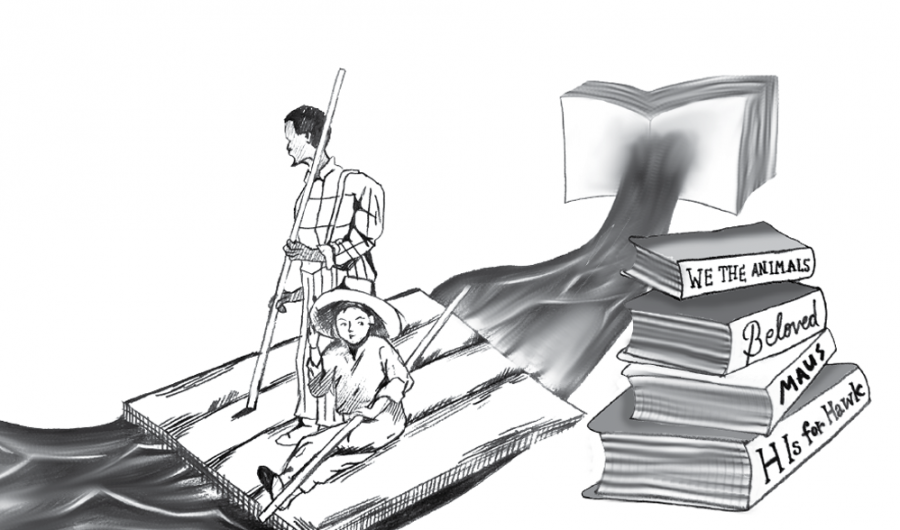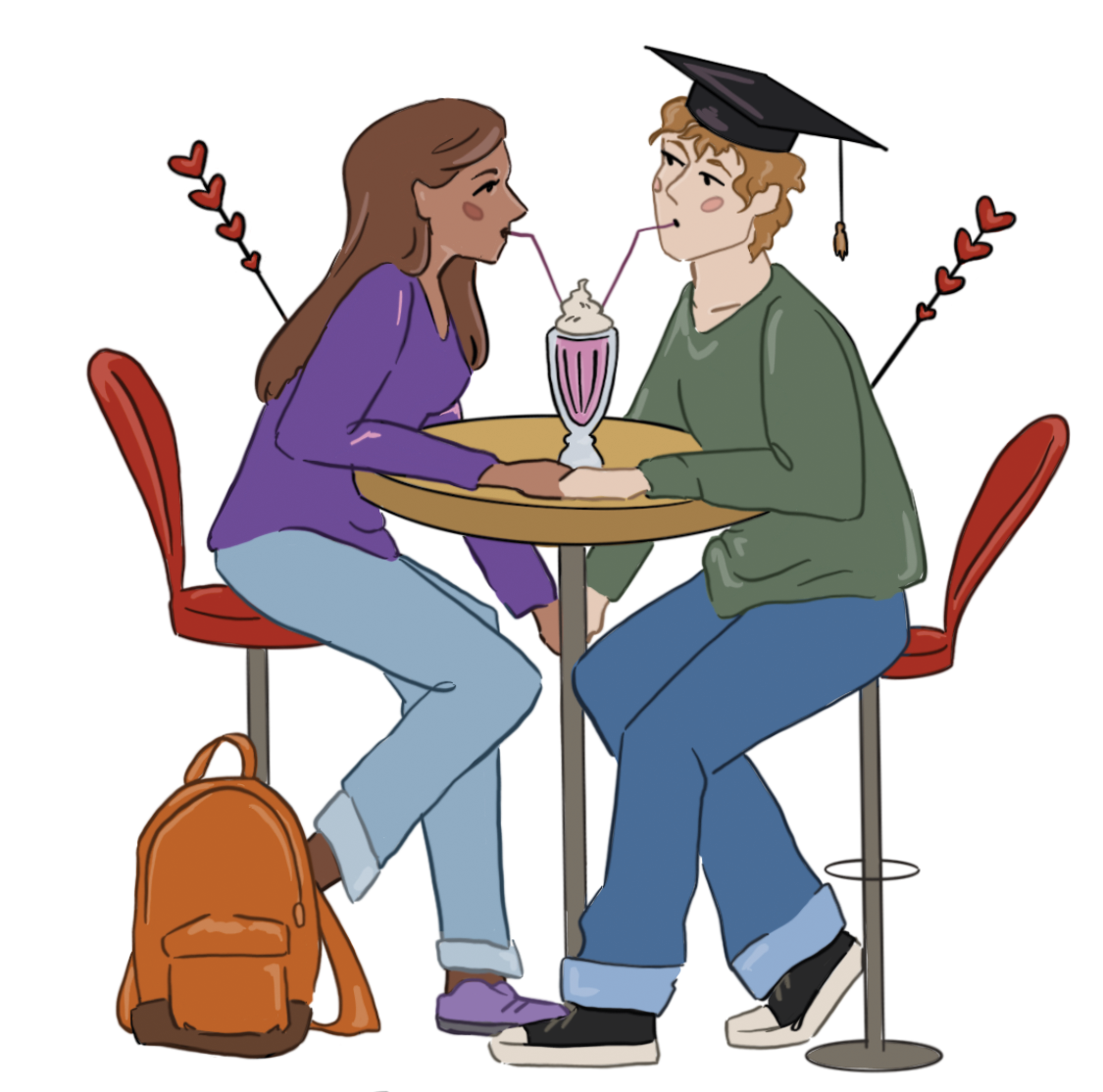In eighth grade at Harvard-Westlake, there is one quote that every student will read in Harper Lee’s “To Kill a Mockingbird.” It is Atticus Finch telling his daughter Scout, “You never really understand a person until you consider things from his point of view […] until you climb into his skin and walk around in it.”
English teachers Lisa Rado, Jocelyn Medawar and English Department Head Larry Weber all teach different reading lists, with different focuses for different classes. But the one thing they all search for is diversity, agreeing that reading varied literature is a way in which students can step into other people’s shoes as they were taught to in eighth grade.
According to its page on hw.com, the English Department seeks to incorporate works into its curriculum that expose readers to a multitude of cultural perspectives in an effort to provide students with an understanding of themselves and empathy for others.
The manner with which each teacher works towards accomplishing this goal, however, is not always easy and varies based on the class and grade level.
Rado said this philosophy of incorporating more perspectives into the English curriculum was well articulated by Jacqueline Woodson, the Keynote Speaker at the 2016 “Wider than the Sky: A Young People’s Poetry Festival.”
“She argued in her speech that everyone needs two things when they read, mirrors and windows,” Rado said.
Rado explained this idea to mean that while readers feel a sense of validation when they read about characters who share their own life experience, it is also imperative to increase one’s own understanding of the world outside of themselves by reading stories presented through various perspectives.
“I have many jobs, but one of them is to provide both of those things,” Rado added.
The diversity Rado seeks to expose students to in AP Literature: Outsiders and Aliens and AP Language: Writing a Life includes and extends beyond race, gender and class, she said. Rado presents students with characters who have varying sexual experiences, mental illnesses and geographical backgrounds. Through her selection of this course material, Rado said, she is able to organically facilitate in-class conversations about inclusivity and the tolerance and acknowledgment of varying cultures.
Conversation about this type of diversity within the English department’s curriculum became particularly prominent recently with the decision to temporarily remove “The Adventures of Huckleberry Finn” from the sophomore classes due to its use of the n-word and representations of African-Americans.
“I’d call it a hiatus,” Weber said. “It’s certainly not a judgment of the greatness of that work. We weren’t comfortable with how we were teaching it. We did what we could. I feel we made earnest efforts to build a conversation around the uses of a language that can offend and create a context for use of the n-word.”
To start a conversation about the use of the n-word in Mark Twain’s satire, the teachers would often preface the work with a New York Times article detailing various perspectives regarding a professor’s controversial decision to publish the book, replacing the n-word with the word slave.
“Teachers have to be willing to take that leap [to have tough conversations],” Black Leadership, Awareness and Culture Club Leader Anya Andrews ’17 said. “They can’t be afraid to make mistakes – teachers make mistakes, and we recognize that. What can go wrong with having a discussion and opening up to people? Students may have knowledge that the teachers may not have. This is high school. This is preparation for college – what’s better than having a discussion that’s going to be really significant for us later in life?”
Teachers agree that having controversial dialogue is necessary for growth.
“Sometimes, I think the best conversations can happen when we force ourselves to look at those contradictions and talk about them in a setting like a classroom that is a lot more productive and constructive than out on the street or in other venues,” Rado said.
These conversations could also extend to the eleventh grade English curriculum. This, according to the English department website, focuses on the American experience through literature written by authors of diverse backgrounds, representative of the vast array of voices that have been woven into the cultural fabric of the nation.
Through the English III: Living in America and English III Honors: American Studies courses, according to Weber, students are able to engage in “conversations that become richer, deeper, clearer by virtue of the juxtaposition of different voices, different experiences.”
Medawar said she sees merits in the diversification of the reading list. Medawar believes that students need to be open minded, as it is often difficult to anticipate which work of literature will most resonate, as it is sometimes the texts that are farthest removed from a student’s personal experience.
“The more we play out our curiosity and our need to understand and connect with other viewpoints and find ourselves in them and find ourselves challenged in them, the better we are equipped to deal with the world outside of the classroom,” Medawar said.
Despite the benefits of exploring a broad spectrum of literature, Weber acknowledges limitations to what his department can achieve. One issue is that the school schedule only allows students to study approximately five works per year.
“We don’t expect that to be a lifetime of reading but to be representative of some great literature that touches on and brings different voices into the classroom,” Weber said. “It represents some kind of grounding that students can then take to college or explore more finely in college if they’re inclined.”
Another challenge in constructing a course curriculum, Weber said, is the balance required to present works that broaden perspectives, while still being age-appropriate and sensitive to individuals of all backgrounds.
In an effort to improve the efficacy of the curriculum, the department allows for “teacher’s choice units” at the end of the school year, in which each teacher is able to teach a book of his or her choosing. If the piece of literature promotes a positive classroom experience for both the students and the teacher, the work may eventually become an official part of the curriculum.
“We are no use to ourselves or our students if we have a course with a theme and say ‘well these are the only books we know that fit this theme,’ so it is a really good idea to keep adding to our library of texts that will work,” Medawar said.
As the list of approved texts grows, teachers experiment with different combinations, often swapping books from year-to-year in an effort to produce the most effective curriculum.
Yet, some students say this is a work in progress.
“I think that the school is very set on showing us the classics, which unfortunately are mostly written by white males,” Naomi Barlava ’17 said. “And because of that, we are rarely shown other perspectives in literature. In my time at Harvard-Westlake, I have only read about three books written by women and next to nothing by people of color, other than one book in junior year.”
Weber said that changes are constantly being implemented to diversify these curricula. The AP Literature: Good Grief curriculum, for example, was changed this year to now incorporate more works by women, such as the recently added “H is for Hawk” by Helen MacDonald, Weber said. Similarly, the AP English Literature: Same House Different Worlds course is currently applying for a grant this summer to allow the teachers to explore works, in hopes of diversifying the curriculum.
“We are definitely on track to stop, take stock, and give the theme more play, give it more scope, and have more diverse voices included in the curriculum,” Medawar said.
Weber said the English department is constantly working toward increased recognition of diversity and its curriculum is ever-changing to provide students with more diverse subject matters and perspectives.
“It’s really important to understand this as an evolving conversation over generations not just year-to-year,” Weber said.





































